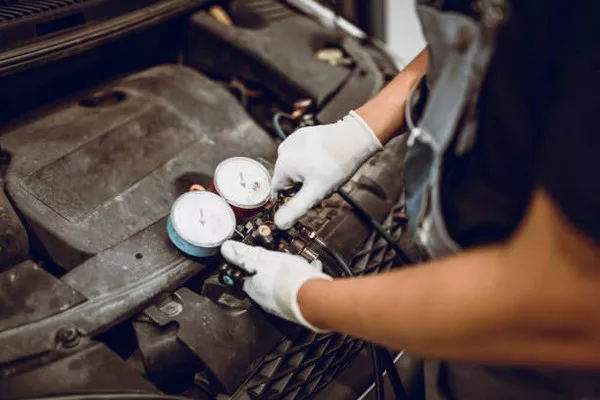The HVAC (Heating, Ventilation, and Air Conditioning) system is a crucial component in maintaining indoor comfort. Central to this system is the HVAC compressor, which acts as the heart of the cooling mechanism. When an HVAC compressor fails, it’s not only an inconvenience but also a significant financial consideration. Understanding the cost of a new HVAC compressor involves examining various factors, including the type of compressor, labor, additional parts, and geographic location. This comprehensive guide will delve into these elements to provide a clear picture of the expenses involved in replacing an HVAC compressor.
Understanding the Role of an HVAC Compressor
An HVAC compressor is a vital part of the air conditioning cycle. It compresses refrigerant, increasing its pressure and temperature before it moves to the condenser coil. This process facilitates the heat exchange necessary to cool indoor air. Without a functioning compressor, the entire HVAC system fails to operate effectively, leading to uncomfortable indoor temperatures and potential damage to the system.
Factors Influencing the Cost of a New HVAC Compressor
Type of Compressor: There are different types of HVAC compressors, including reciprocating, scroll, screw, and rotary compressors. Each type has its specific applications and cost implications.
Reciprocating Compressors: These are commonly used in residential HVAC systems due to their reliability and lower cost. They typically range from $500 to $1,500.
Scroll Compressors: Known for their efficiency and quieter operation, scroll compressors are often found in higher-end systems. They can cost between $800 and $2,200.
Screw Compressors: Primarily used in large commercial HVAC systems, screw compressors are more expensive, usually costing from $1,500 to $4,000.
Rotary Compressors: Often used in smaller systems, these compressors are compact and cost between $300 and $800.
Brand and Quality: The brand of the compressor significantly affects the price. High-end brands such as Trane, Lennox, and Carrier offer more durable and efficient compressors but at a premium price. A compressor from a well-known brand can cost up to 30% more than a generic one.
System Compatibility: The cost can vary depending on whether the new compressor is compatible with the existing HVAC system. If modifications are required to fit the new compressor, additional costs for parts and labor will be incurred.
Labor Costs: Labor is a significant part of the total cost of replacing an HVAC compressor. The complexity of the installation, accessibility of the HVAC unit, and local labor rates all play a role. On average, labor costs range from $500 to $1,200.
Refrigerant Costs: If the HVAC system uses an older refrigerant type like R-22, which is being phased out, replacing the compressor may also involve converting the system to a newer refrigerant like R-410A. This conversion can add an additional $200 to $600 to the overall cost.
Geographic Location: Prices can vary based on geographic location due to differences in labor rates, cost of living, and regional demand. Urban areas with a higher cost of living generally have higher labor and material costs compared to rural areas.
Warranty and Service Contracts: Opting for a compressor with an extended warranty or a comprehensive service contract can increase the initial cost but provides long-term savings by covering future repairs and maintenance.
See also How Much To Replace Refrigerator Compressor
Detailed Cost Breakdown
To provide a clearer picture, let’s break down the costs associated with replacing an HVAC compressor for a typical residential system:
Compressor Unit: $500 to $2,200
Labor: $500 to $1,200
Refrigerant (if conversion needed): $200 to $600
Miscellaneous Parts (fittings, tubing, etc.): $50 to $200
Extended Warranty: $100 to $300
Based on these figures, the total cost of replacing an HVAC compressor can range from $1,250 to $4,500, depending on the various factors discussed.
See also Compressor vs Pump: What’s the Difference?
Cost-Saving Tips
Routine Maintenance: Regular maintenance of your HVAC system can prevent compressor failure by ensuring that all parts are functioning correctly and efficiently. This can extend the life of the compressor and other components, reducing the likelihood of costly replacements.
Early Detection: Addressing issues early can prevent minor problems from escalating into major failures. Symptoms of a failing compressor include unusual noises, reduced cooling efficiency, and frequent system cycling.
Energy Efficiency: Investing in an energy-efficient compressor can lead to long-term savings on energy bills. Look for compressors with high SEER (Seasonal Energy Efficiency Ratio) ratings.
Professional Installation: Ensure that the installation is performed by a licensed and experienced HVAC technician. Poor installation can lead to premature failure and additional costs.
Shop Around: Get quotes from multiple HVAC service providers to compare prices and services. This can help you find the best deal and ensure that you are not overpaying for the replacement.
Conclusion
Replacing an HVAC compressor is a significant investment, but understanding the factors that influence the cost can help you make an informed decision. The type of compressor, brand, system compatibility, labor, refrigerant, geographic location, and warranty options all contribute to the overall expense. By considering these factors and implementing cost-saving strategies, you can manage the financial impact of this essential home maintenance task. Regular maintenance and early detection of issues can prolong the life of your HVAC system, ensuring comfort and efficiency for years to come.

